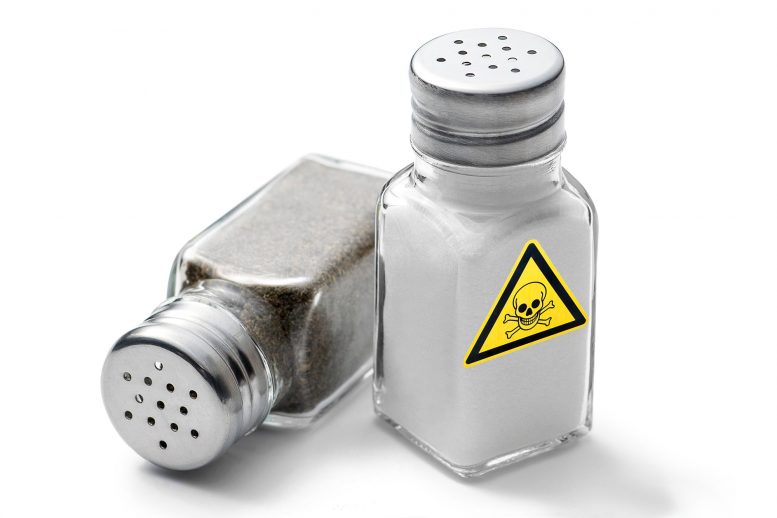
Salt sold in supermarkets and salt shakers in restaurants should be required to carry a front-of-pack, tobacco-style health warning, according to The World Hypertension League and leading international health organizations.
In a position statement published in the Journal of Clinical Hypertension, lead author Dr. Norm Campbell, former President of the World Hypertension League, said it was time for a more hard-hitting approach to dietary salt reduction.
“Unhealthy diets are a leading cause of death globally and excess salt consumption is the biggest culprit, estimated to cause over 3 million deaths globally in 2017.”
“The World Health Organization established a target for countries to reduce sodium intake by 30% by 2025, and governments and the food industry have been working together to reduce salt in processed foods. However, urgent action now needs to be taken to raise consumer awareness of these dangers,” added Dr. Campbell.
“Although many countries have started to look at a variety of public health measures to encourage people to eat less salt, we’re not aware of any that have required actual containers of salt to have warning labels,” he said.
Jacqui Webster, Director of the World Health Organization Collaborating Center on Population Salt Reduction at the George Institute for Global Health, commented, “Eating too much salt increases people’s blood pressure which is one of the biggest contributors to premature death from stroke or heart disease.”
“Although most countries require sodium levels on labels in processed foods, they are difficult for people to interpret and don’t warn of any health risks.”
“Health warnings on salt packages and dispensers would be a simple, cost-effective way of conveying the dangers of salt to billions of people worldwide,” she added.
“Most people aren’t aware that the amount of salt they are consuming is raising their blood pressure and shortening their lives,” said Dr. Tom Frieden, President and CEO of Resolve to Save Lives, an initiative of Vital Strategies. “Warning labels on packaged foods and menus can help people make healthier choices. Adding warning labels to all salt packaging is another way to make the healthy choice the easy choice.”
The authors proposed the following wording for the warning: “Excess sodium can cause high blood pressure and promote stomach cancer. Limit your use.”
Signatories to the position statement include World Hypertension League, Resolve to Save Lives, World Health Organization Collaborating Centre on Salt Reduction, The George Institute for Global Health, World Action on Salt and Health (WASH), Consensus Action on Salt and Health (CASH), World Health Organization Collaborating Centre for Nutrition, University of Warwick, Hypertension Canada, and the British and Irish Hypertension Society.
Reference: “Packages of sodium (Salt) sold for consumption and salt dispensers should be required to have a front of package health warning label: A position statement of the World Hypertension League, national and international health and scientific organizations” by Norm R. C. Campbell MD, Jacqui Webster PhD, Adriana Blanco‐Metzler MSc, Feng J. He PhD, Monique Tan MSc, Graham A. MacGregor MD, Francesco P. Cappuccio MD, MSc, DSc, FRCP, FFPH, FBHS, FESC, FAHA, JoAnne Arcand PhD, RD, Kathy Trieu PhD, Clare Farrand MSc, Alexandra Jones LLM, Paul K. Whelton MB, MD, MSc and Xin‐Hua Zhang MD, PhD, 25 September 2019, Journal of Clinical Hypertension.
DOI: 10.1111/jch.13698








The best quality study to date, published in the Lancet last year and based on fasting morning urine analysis to determine sodium levels, found that low sodium diets were dangerous to health in a number of ways, whereas only diets exceeding 5 grams of sodium a day posed any danger at all to cardiovascular health. https://www.thelancet.com/journals/lancet/article/PIIS0140-6736(18)31376-X/fulltext
The people in this article are fixated on discredited science and pushing people toward ill health.